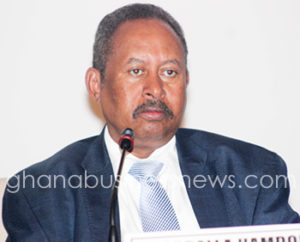A data revolution is happening in Africa
 A revolution is underway in Africa and it is not one that involves crowds taking to the streets. Instead it is a revolution in the way the continent is generating and using data to help shape its future.
A revolution is underway in Africa and it is not one that involves crowds taking to the streets. Instead it is a revolution in the way the continent is generating and using data to help shape its future.
In the past decade narratives about Africa have moved from one extreme to another. Ten years ago, the continent was written off as a “basket case”. Then there were signs of macroeconomic growth, and analysts talked of “Africa rising”. Now, this new stance could already be shifting.
Economic and political fortunes dictate these drastic shifts in narrative to an extent. Much of this rhetorical transformation is down to what data and statistics tell us. Economists and analysts in Africa and internationally look at numbers to reveal important trends, but on our continent doing so is not as straightforward or reliable as it could be.
Africa has long suffered from a lack of high-quality, transparent and reliable statistics. This type of data is essential to support policy formulation and decision-making, as well as to monitor progress and evaluate the outcomes of development programmes. For instance, it is estimated that more than half of births in Africa are not recorded, and more than 23 countries have failed to take a census in over a decade. If this is true, how can we reasonably talk about poverty reduction, sound fiscal policies or land ownership issues?
So there is a need for more robust and sound information But, crucially, the data collected should also be more accessible and better utilised. More open data from African governments means that civil society can engage with data and hold their governments to account. This also applies to businesses that benefit from the insights such data provides when making tough business decisions, and ultimately investing in the economy.
The Mo Ibrahim Foundation has worked to advance governance in African countries for ten years. Through the Ibrahim Index of African Governance (IIAG), the Foundation measures and monitors governance performance in African countries, assesses its progress over time and supports the development of effective policy solutions.
Looking at the evolution of the Index it is possible to see the great progress made to increase the volume and quality of the data and statistics in the last 10 years. In 2007 the first IIAG included only 28 sources of data, of which only one was Africa-based. Today, the Index includes 34 data sources with four African sources contributing about 17 percent of the total data. This reflects a big step forward.
Enhancing the availability and use of data has been one of the Foundation’s core goals since it was established ten years ago. Our partnership to support research network Afrobarometer in the collection of Public Attitude Surveys throughout the continent has been one of our largest commitments. Thanks to this collaboration the IIAG now includes public perceptions from 37 countries in Africa.
The Foundation has also been working with Global Integrity since 2012 to generate the Africa Integrity Indicators (AII), assessing social, economic, political and anti-corruption mechanisms across the continent. Thanks to these projects we have been collecting data on the ground that improves measures of governance and the everyday lives of African citizens, especially around issues of democracy, poverty and participation.
But there is still a long way to go, and we need to see national statistics strategies being introduced. More governments need to develop comprehensive programmes to increase the availability of high-quality, accessible and reliable statistics in their countries.
We also need to see innovation. Innovative measures are being adopted to address the gap in statistics. For instance at least 30 countries are expected to use mobile technology to register births in the next decade.
We also must encourage capability building throughout the continent. UNECA, together with partners including the African Union, African Development Bank, World Bank and others has been addressing the shortage of qualified statisticians by providing training on the collection and use of data to several African administrations.
Lastly, we must improve access to data, and here the Mo Ibrahim Foundation’s IIAG Data Portal provides a model to follow. Launched today, on African Statistics Day, the Portal will serve as the digital home to the IIAG’s extensive governance data. For the first time, the Portal enables analysis of its 95 indicators across Africa’s 54 countries. It allows analysis, comparison and interaction with rank, score and also trends at country, regional and continent level.
By making access to data easier and more transparent, we can unleash its democratising power, and help countries to understand the real status quo.
We need African governments to support this drive to develop high-quality, accessible and independent statistics on their countries. At an international level, we hope to see increased funding to support this work. Ultimately, all will benefit, as we will be able to paint a far more accurate picture of Africa.
By Dr. Abdalla Hamdok,
Acting Executive Secretary of the United Nations Economic Commission for Africa, and
Chair of the Mo Ibrahim Foundation’s Ibrahim Index of African Governance Advisory Council.
